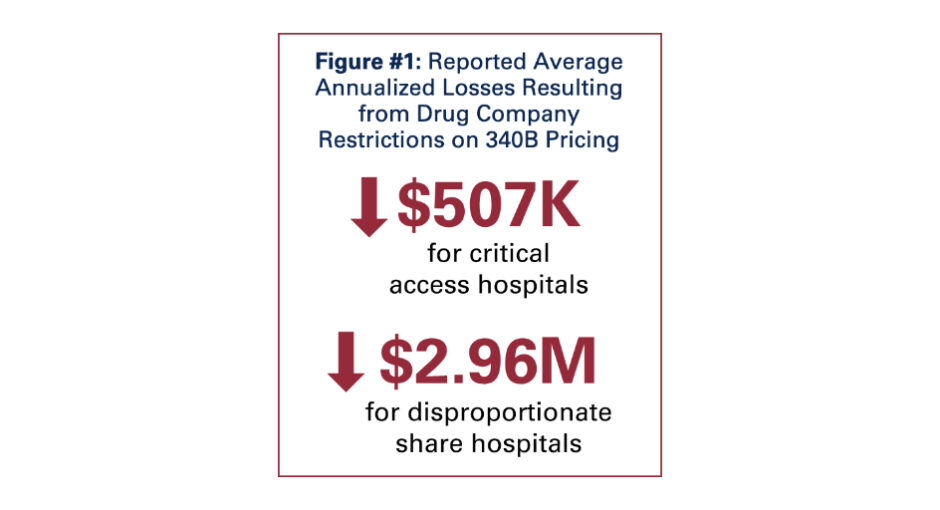Drug company actions to limit 340B pricing through contract and specialty pharmacies are harming 340B hospitals and their patients, according to a new American Hospital Association member survey.
AHA released the results yesterday. More than 300 hospitals were surveyed in April, when 14 manufacturers had such policies. The number has since grown to 18.
The association said disproportionate share hospitals reported average annualized losses of $2.96 million and critical access hospitals reported losses of $507,000 from drug company restrictions on 340B pricing. Ten percent of hospitals reported $10 million or more in financial impact.
The average annual loss per contract pharmacy arrangement was $117,000 for CAHs and $102,000 for DSH hospitals. On average, CAHs reported 44% of their total 340B savings coming from contract pharmacies, with several CAHs reporting that their entire 340B savings come from these arrangements, AHA said.
AHA said the survey found that about 20% of 340B contract pharmacy arrangements had no drug purchase volume.
“These ‘no volume on the books’ pharmacy arrangements are primarily an outcome of large pharmacy chain policies requiring covered entities to enter into arrangements with all pharmacies in a given area,” AHA said. “As a result, the actual number of ‘active’ arrangements with [contract] pharmacies are much lower than what hospitals are required to report to [the U.S. Health Resources and Services Administration]. This finding demonstrates how drug companies inaccurately portray growth in the program.”
AHA said in the report that manufacturers’ actions have affected hospitals’ ability to mitigate staff shortages. They also have forced hospitals to reduce community outreach activities and programs that target underserved patients and to limit or temporarily close “specialty clinics and service lines that are critical like OBGYN and oncology.”
AHA Executive Vice President Stacey Hughes said the report shows “how unlawful actions by drug companies to restrict 340B discounts to community and specialty pharmacies are directly reducing access to care and services for patients and communities, especially those in rural areas.”
“We continue to urge the Department of Health and Human Services to aggressively use all tools available to stop these harmful tactics from drug companies,” Hughes said.


